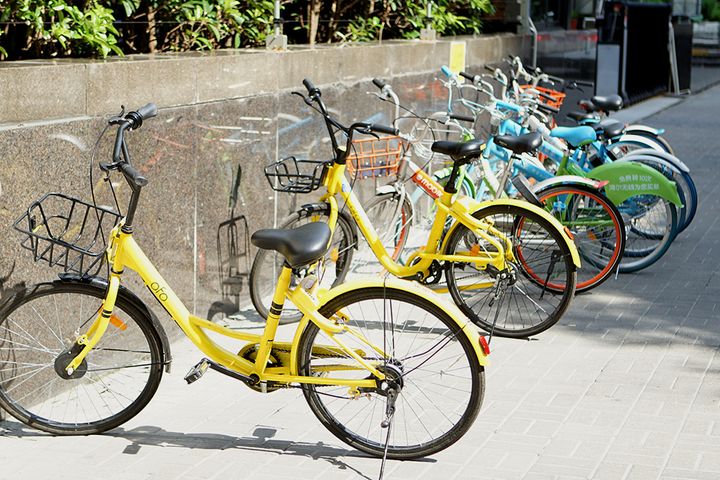 Bike-Share Firms Mobike, Ofo Strengthen Their Dominance by Completing Financing Rounds
Bike-Share Firms Mobike, Ofo Strengthen Their Dominance by Completing Financing Rounds(Yicai Global) July 7 -- Beijing Mobike Technology Co. and Ofo Bicycle Co. have each completed a financing round, strengthen their dominance in China's bike-sharing market. Ofo is backed by Alibaba Group Holding Ltd. [NYSE:BABA] and Mobike has Tencent Holdings Ltd.'s [HKG:0700] support.
"Tens of millions of users vote with their feet for who will be No. 1 in the bicycle-sharing sector," said Zhu Xiaohu, managing director of Ofo backer GSR Ventures Management Co. "More importantly, our fitness and cityscape have been changed by bike-sharing. The only rival for Ofo is laziness."
Ofo officially completed its USD700 million E-round of financing on July 6. It was led by Alibaba, Hony Capital and CITIC Private Equity Funds Management Co. In April, Ofo announced that had it received a strategic investment from Ant Financial Services Group, Alibaba's financial technology division, saying the groups would work together on payment, credit, internationalization and other fields to improve user experience in the bike-sharing industry and promote the use of electronic payments.
Tencent invested in Mobike during its C-round of financing and took the initiative to increase its backing during the latest E-round of financing worth USD600 million. Tencent helped Mobike with Mini Programs, back-end technologies, cloud services and advertising and assisted the bike-sharing firm boost its popularity on WeChat.
Ofo and Mobike have been fiercely competing. Since 2015, Ofo has penetrated more than 150 cities. Mobike rolled out its services in 130 cities in a 14-month span.
Bicycle-sharing groups that have not found effective profitability models must invest a lot of capital. Small players including WuKong Bike and 3Vbike have shutdown, and entering the sector is has become harder.
"New entrants basically have no chance," said Huang Peihua, a partner at Mobike backer Qiming Venture Partners V, LP. GSR Ventures' Zhu said the same thing.
Second-tier brands including Xiaoming Bike and Hellobike are still struggling to gain ground. Huang and Zhu expect a lot of companies will enter market. They think that scalability and operational efficiency are the first concerns newcomers must address, and that urban management represents the second threshold.
"The urban management of shared bicycles will continue to be a mess, and is set to bring about a new development space for new entrants," an owner of a bike-sharing firm told Yicai Global.
Despite being smaller than the top two titans, Xiaoming Bike intends to turn the tide with Electronic Fence technology.
Electronic Fence uses the Internet of Things to force users to park bikes in designated areas. Users cannot lock a bicycle outside the areas or will continue to be charged after locking a bike there.
"Differentiation is the only way to survive," said Chen Yuying, founder and chief executive of Xiaoming Bike. "Bike-sharing is an asset heavy business and there is no way for one company to corner the market." Some big companies in the market do not want to enter third- and fourth- and fifth-tier cities in the short-term "because bikes might be stolen or damaged there. The Electronic Fence technology can give them essential assurance in these areas."
Since its inception, Hellobike conceded the first-tier market and focused on second- and third-tier cities. It announced that it had received the funds from its B-round of financing on July 4. It has a presence in more than 90 second- and third-tier cities and has inked exclusive rights agreements in some areas.
Hellobike's strategy is "to surround the cities from the countryside," said Han Mei, the firm's cofounder and chief operating officer. The company should tap into at least 300 cities this year and deploy 5 million bikes, Han said.